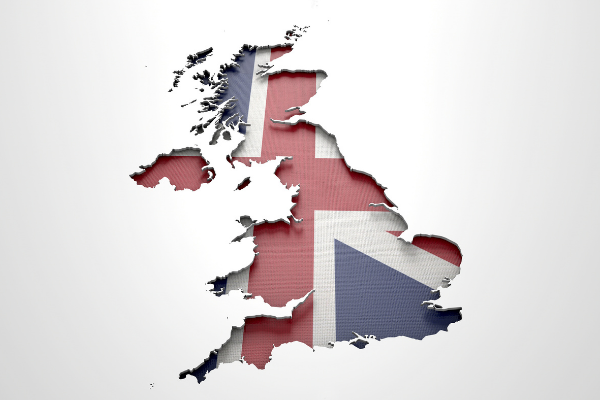BY:
SHARE:

The UK Global Tariff can be a valuable source of direction at export as to whether goods for export may need an export licence. If goods are accurately classified, checking the notes on the tariff for an export control marker makes good compliance sense. It’s better to be safe than sorry.
Military and Dual-Use Goods
If goods are specifically designed or have been adapted for Military purposes, a UK Export Licence is required. Job done.
Dual-use goods control can be easily overlooked if an exporter's mindset focuses on the benign export purpose. Therefore, control requirements are often missed if the UK business is unaware that controls will apply simply because of the goods' potential use, rather than the reason they are being exported.
It’s essential to be aware that there are two separate Dual-Use regulations applicable to UK Exporters. Firstly, the Retained Regulation EC 428/2009 Annexe I and IV. There is also a specific UK Dual-Use List which could apply. Items caught in this section could require an Export Licence.
As with any regulation, ignorance of the law is no defence.
Examples where an export can slip through the controls net:
- Engineering Goods and Tools: particularly if they are destined for or could be used in the Oil and Gas industry
- Underwater Cameras: Good one. If Cameras can function underwater beyond a certain depth, a control will be applied, and an Export Licence will be necessary.
Underwater Cameras are used in Oil and Gas exploration
- Aerospace and maritime goods: High-Pressure Valves, O-rings and Seals can easily be captured under the controls.
It will be necessary for a person considered to be ‘competent authority’ (regulatory term) within an organisation to classify the goods against the Tariff accurately, and against the UK Strategic Export Controls Lists, should an export control marker be indicated in the Export Notes on the Tariff.
Top Tips
- Accurate Tariff Classification is essential. Know what you are exporting. Interrogate the UK Global Tariff and accurately classify your goods. This will take training and practice. Goods that may be subject to control are flagged in the Tariff Notes, and users are directed to check the controls.
- ·The controls can also include the end-use destination. It is also essential to be aware of End-Use Controls.
- Use the Goods Checker. The link to Goods Checker
Examples of Export Markers from the UK Global Tariff Export Tab:
EX001 Export Control for All Third Countries:
Description: The export of these items may be controlled under the Export Control Order 2008 (which encompasses the UK Military and UK Dual-Use Lists) as amended. Please refer to the Goods Checker to determine whether your items are controlled and whether you need a Licence from the Export Control Joint Unit.
Note: The Goods Checker tool is available to help identify whether your goods for export are captured on the Strategic Export Controls Lists.
EX005: Export Authorisation (Dual-Use) for Third Countries
Description: The export of these items may be controlled under Retained Council Regulation (EC) No. 428/2009. Please refer to the Goods Checker to determine whether your items are controlled and whether you need a licence from the Export Control Joint Unit.
Note: The Retained Council Regulation (EC) No. 428/2009 is the UK Dual-Use regulation retained from the EU regulation that applied before the UK left the EU.
EX012: Export control on restricted goods and technologies for Russia
Description: The export of energy-related goods for use in Russia and infrastructure-related goods and technology to Crimea is controlled (as well as related activities). Please refer to the Sanctions to determine whether your items are controlled and whether you need a Licence from the Export Control Joint Unit.
Note: This is a good example of how awareness of the end-use of goods is restricted due to a UK Sanction or Embargo.
The exercise of both classification and goods rating against the control lists should be completed, and the results of this Tariff investigation should be recorded. If goods are stopped at export, evidence must be provided to Border Force that the investigation and resulting conclusions are proven and accurate.
- Know what is being procured and keep accurate records.
Often, the weakest link supporting an export audit is the classification of goods being procured. Therefore, procurement records are becoming increasingly essential to support company exports, whether goods are being procured from UK suppliers or from abroad.
Consider making the completion of a classification document part of your PO Conditions of Purchase. Data capture at the procurement stage could support the recording of goods' origin (to facilitate the use of a Preference Origin and a Free Trade Agreement) and help determine whether any other country controls may apply on re-export. For example, US goods are tightly controlled, whether integrated into goods to be exported or re-exported in their original imported state.
OneCall™ Email assistance as and when required; A one-call solution for all your import, export and customs enquiries. Export help. Import help. Customs help.
Stay informed about customs and international trade matters by subscribing to our OneCall™ service. This comprehensive offering includes a dedicated email helpline for support, timely practical updates direct to your inbox (Did You Know?), monthly UK Customs & Trade Briefings and access to an interactive members' area with an exclusive community for our subscribers.
International Trade Updates & Spotlight Newsletter
Subscribe to our free information emails covering international trade topics...
MORE INDUSTRY INSIGHTS...










